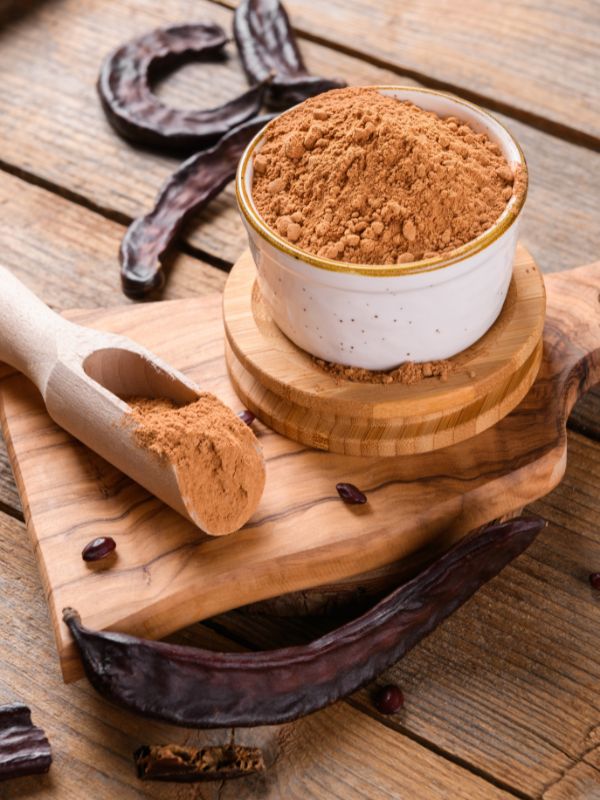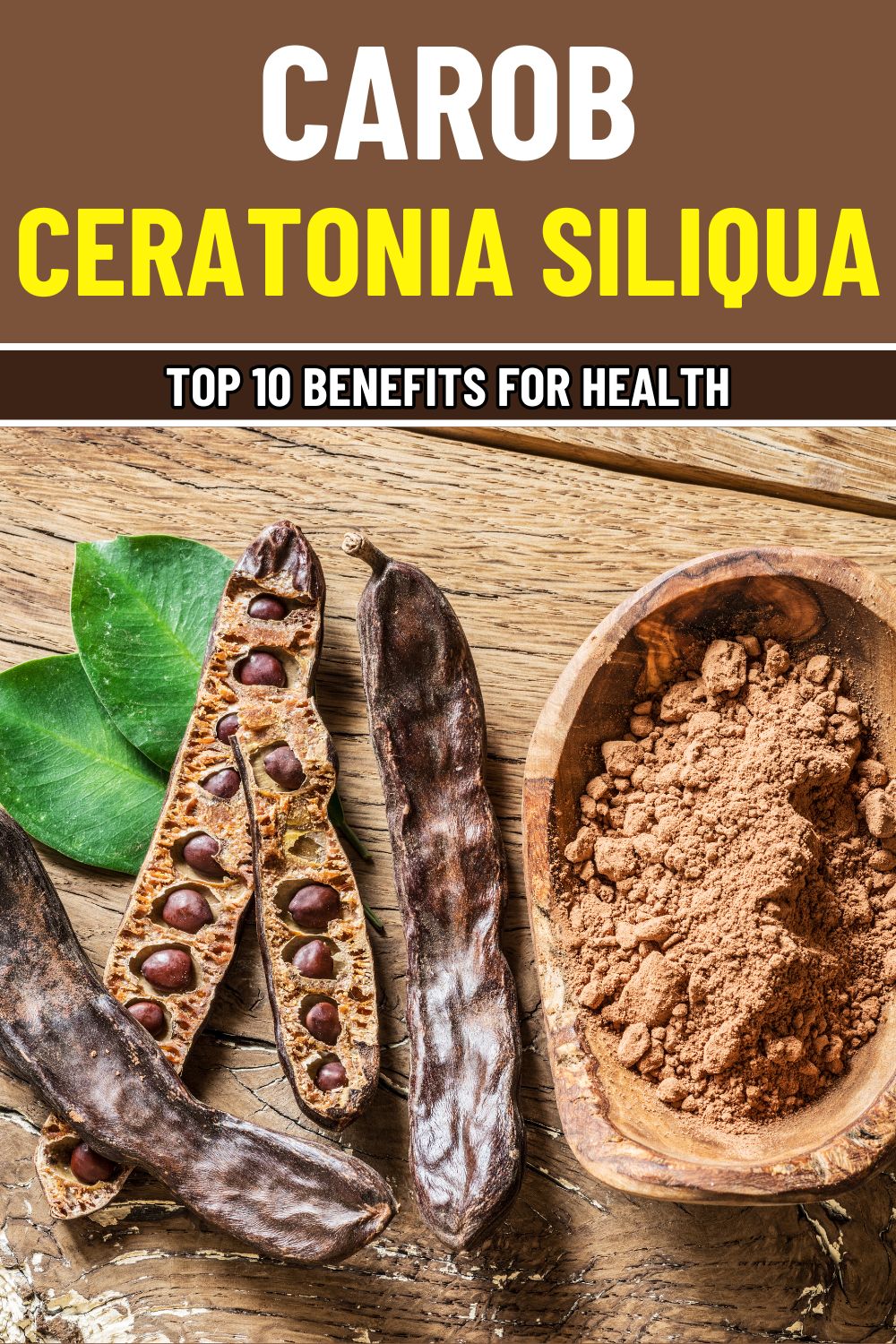Carob (Ceratonia siliqua), often called nature’s sweet superfood, is a versatile ingredient native to the Mediterranean region.
Derived from the pods of the carob tree, this naturally sweet alternative to cocoa is celebrated for its health benefits and unique flavor.
Completely caffeine-free, gluten-free, and packed with nutrients, carob supports digestion, heart health, and overall wellness.
Whether you’re looking for a nutritious cocoa substitute or exploring ways to enhance your health naturally, carob is a choice worth considering.
#1. Rich in Antioxidants
Carob contains powerful antioxidants like polyphenols, gallic acid, and flavonoids that protect cells from oxidative stress and inflammation.
A study published in the Journal of Agricultural and Food Chemistry highlights its ability to combat free radicals, reducing the risk of chronic diseases like heart disease and cancer.

#2. Supports Digestive Health
The high fiber content in carob promotes a healthy digestive system by regulating bowel movements and reducing constipation.
Additionally, its natural tannins act as mild astringents, soothing gastrointestinal discomfort and alleviating diarrhea.
#3. Caffeine-Free
Carob is an excellent alternative to cocoa for individuals sensitive to caffeine or those seeking to reduce their intake.
Its lack of stimulants makes it safe for pregnant women, children, and anyone looking for a naturally energizing treat.

#4. Natural Sweetener
With its naturally sweet flavor, carob eliminates the need for added sugar in recipes.
This makes it a fantastic choice for diabetics and those managing their sugar intake. Its low glycemic index ensures stable blood sugar levels.
#5. Rich in Calcium
Carob provides approximately 348 mg of calcium per 100 grams, supporting strong bones and teeth.
Unlike cocoa, it is free from oxalates, which can interfere with calcium absorption, making it a superior choice for bone health.

#6. Heart Health Benefits
Carob’s fiber and polyphenols contribute to lowering LDL cholesterol levels and supporting cardiovascular health.
Moreover, it’s also potassium-rich, helping regulate blood pressure naturally.

#7. Weight Management
Carob’s high fiber content promotes a feeling of fullness, helping control appetite and reducing calorie intake.
This makes it a valuable ingredient for those aiming to maintain or lose weight.
#8. Improves Skin Health
Rich in antioxidants and vitamin E, carob helps combat signs of aging, such as wrinkles and fine lines.
It also promotes a healthy glow, making it a natural addition to beauty routines.

#9. Good for Teeth
Unlike cocoa, carob is free from theobromine and acids that can erode tooth enamel.
Its natural sweetness satisfies chocolate cravings without harming dental health.

#10. Safe for Toddlers and Pets
Carob contains no harmful compounds like caffeine or theobromine, making it a safe and nutritious treat for children and pets.
Its mild, sweet flavor is particularly appealing to picky eaters.

How to Use Carob
- Carob tea: Boil 1–2 dried carob pods or 2 tablespoons of carob powder in 3 cups of water for 10 minutes. Strain and serve warm.
- Carob syrup: Simmer chopped carob pods in water until thickened. Use as a natural sweetener for pancakes or desserts.
- Carob energy balls: Blend oats, dates, nuts, and carob powder. Shape into balls and refrigerate for a healthy snack.
- Carob powder for baking: Replace cocoa powder with carob in a 1:1 ratio for cookies, cakes, and brownies.
- Carob spread: Mix carob powder with coconut oil, honey, and milk powder to create a delicious spread for toast.

Cautions and Precautions
While carob is safe for most individuals, excessive consumption may cause mild digestive discomfort due to its high fiber content. Diabetics should monitor their intake, as carob contains natural sugars.
If you have allergies to legumes, introduce carob gradually to ensure it doesn’t trigger a reaction. Pregnant or breastfeeding women should consult a healthcare provider before incorporating carob into their diet.
Disclaimer
This article is for informational purposes only and not a substitute for professional medical advice.
Always consult your healthcare provider before adding new foods or supplements to your routine.

Why Carob Is the Ultimate Cocoa Substitute for Health and Flavor
